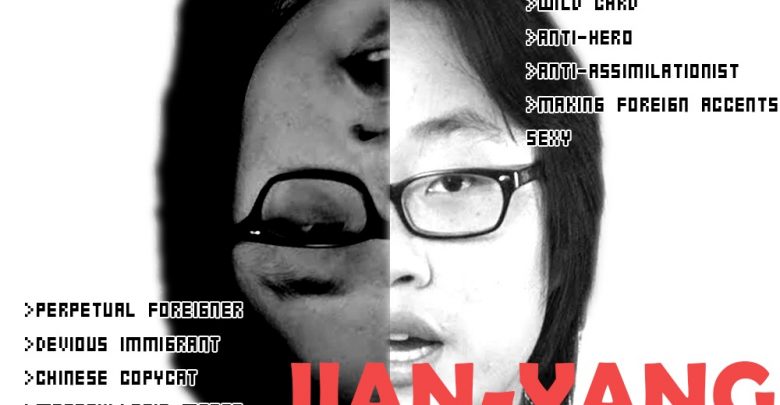HBO’s “Silicon Valley” Maintains its Reliance on Problematic Racial Comedy

Despite recent criticism, the writers of HBO’s Silicon Valley have not disrupted the way Jian-Yang (Jimmy O. Yang) is characterized as a collection of stereotypes in the latest season of the show (season 5, March 25 – May 13, 2018). With his nemesis (T. J. Miller’s Erlich Bachman) gone, Jian-Yang’s role has been elevated from a bit-part to become the show’s “main asshole.” The show’s main cast has moved on to bringing Pied Piper’s vision of bringing peer-to-peer internet to the world, while Jian-Yang is left to device petty villainy for laughs.
Erlich was last seen as an opium addict in Tibet; Jian-Yang capitalizes on his absence by proving that he is dead so that he can inherit his assets (the incubator house and his 10% ownership of Pied Piper). He creates a laughably obvious fake will and schemes about cost-effective ways of proving that Erlich is dead:
“I want to ship a dead body from China, but it’s hard to find a white body in China, especially fat like Eric [sic]. So I buy a fat white cadaver from Cincinnati Medical School. But to ship to China, then switch box, then ship back, it’s way too much money.”
In episode 2, he finds another way to fake Erlich’s death: “My corrupt uncle sent a death certificate from China, but to send body is too expensive. So I cremate a pig. Because a pig is most like a fat human.”
![]()
After kicking the main cast out of the Hacker Hostel (“The Eric administration is over. Sorry, you are victims of circumstance.”), Jian-Ying is seen next to a whiteboard filled with Chinese imitations of famous software brands. This includes plans for a “New Pied Piper”. After his attempts to become involved with the company that he partially inherited fail, Jared and Richard discover that another character is the rightful “heir” of Erlich’s possessions. Episode 4 ends on a note of suspense – when the main cast discovers that Jian-Yang has left the country to establish his “New Pied Piper” in China.

In episode 5, venture capitalist Laurie Bream tells Richard that the “New Pied Piper” merely amounts to a gay, Christian dating site in China (i.e. a seemingly pointless copy of First Sight, one of the first sites being hosted on PiperNet). The show thus perpetuates an old, outdated, and self-satisfying view that Chinese tech amounts to – and will only ever amount to – mere (and inferior) imitation of American tech.
In episode 6, there is a plot twist that marks the end of Jian-Yang’s character arc. Megalomaniacal Hooli CEO Gavin Belson realizes that Jian-Yang’s company is utilizing a different decentralized methodology that does not infringe on Pied Piper’s patent (but Jian-Yang is still unable to obtain a license from the Chinese government). When Jian-Yang refuses to sell off his company (he wants to know why Belson wants it), Belson persuades Yao, the CEO of his Chinese manufacturing plant, to use “old China” tactics to coerce him to do so. Yao succeeds, but then reveals that Jian-Yang has sold the rights to himself. He then reveals his intentions to crush Hooli to Belson.

The show’s writers have attempted to insulate Silicon Valley from criticism about racial stereotyping by hinting that the show itself is ironically self-aware. When Richard seeks advice from his lawyer Ron about a possibility of Jian-Yang interfering with Pied Piper, Ron appears to be genuinely concerned that Richard might be racist: “So what’s your real beef here then huh Richie? Got something against him? You don’t have like a bias against Asians, do you?” (The answer: an emphatic no.) Richard’s COO Jared earnestly asks for clarification later on: “You’d tell me if you harbored nativist feelings, wouldn’t you?”
The show excels in satirizing the technology industry’s inclinations towards messianism and hypocrisy, and has made some progress in critiquing its sexism and misogyny (without losing its pace and humor). In episode 5, for example, the issue of sexual harassment is addressed indirectly through a subplot involving a female AI named Fiona. When it comes to issues of race, however, the show has mostly been complacent and inept.
In episode 3, a COO from another company walks into Pied Piper and makes a knowing comment about the lack of diversity in the fictional company (and, implicitly, the entire show and the real industry it references): “Nice gender mix. Could use a little bit more color.”
Likewise, an exchange between Gilfoyle and Jian-Yang (about the “random Chinese dudes” that he invited into the house) casually uses ironic racism as a source of humor:
Gilfoyle: “There had better not be a Chinaman in my bed.”
Jian-Yang: “That’s racist.”
Gilfoyle (deadpans): “Yes, I am racist.”
![]()
For some, the show’s own admission that there’s some seemingly “harmless” racist comedy at play is enough to make it to be inoffensive. In the Toronto Star, for example, Johanna Schneller opines that Jian-Yang is turning into a “true TV anti-hero” rather than perpetuating “a collection of clichés.” Vulture’s E. Alex Jung has described Jian-Yang as being an “anti-assimilationist” character: an immigrant who courageously decides not to assimilate into American social and ideological norms. One could argue, however, that the show’s writers have primarily intended Jian-Yang to be anti-Erlich, and then turned him into the anti-Pied Piper when Miller left the show. (The anti-assimilationist interpretation ultimately rings hollow when Jian-Yang is seen begging for a chance to return to the Hacker Hostel in the season 5 finale: “Okay, I tell you everything. But I want to move back into the house. I want to come home.”)
Jimmy O. Yang himself has attempted to defend his character in interviews with Vulture, Uproxx, The Huffington Post, and Vanity Fair. He has argued that the “specific Mandarin accent” he crafted for his character differentiates it from being stereotypical, and that it is the perception of the accent – and not the accent itself – that is the main problem. His intentions are to make immigrant characters with accents appear “funny, likable, or even sexy” – and to portray them with humanity.
These are all admirable intentions, but the proof is ultimately in the pudding. Earlier this year, sociologist Nancy Wang Yuen pointed out that audiences were laughing out loud at Hong Chau’s performance in Downsizing (as Ngoc Lan Tram, a heavily-accented one-legged Vietnamese refugee) during her most poignant scene. You have to look very, very hard for any kind of poignancy – or the capacity to subvert the association of thick Asian accents with ridicule and the perpetual foreigner stereotype – in Jian-Yang’s characterization as an unethically ambitious victim-turned-villain with questionable coding skills. His personal victories are attributed more to luck than ingenuity, good intentions, or a strong work ethic.
When you look at comments on YouTube clips or Reddit, it is hardly surprising to find people mining Jian-Yang’s memorably stilted one-liners for additional laughter. The comedic efficiency (he often elicits laughter with only a few lines) sticks with the audience alongside the collection of familiar stereotypes: the perpetual foreigner; the scheming and unethical immigrant who aspires to get rich quickly at any cost; Yellow Peril in a high-tech setting. You can find some humanity and sex appeal in the other male East Asian characters (e.g. Ed Chen and Yao) that appear briefly in the show – but Jian-Yang is the one with a lion’s share of the screen time.
-
OFFENDER: HBO
CATEGORY OF OFFENSE: Denigration ( Reinforces Stereotypes)
MEDIA TYPE: TV Shoe
OFFENSE DATE: May 1, 2018





